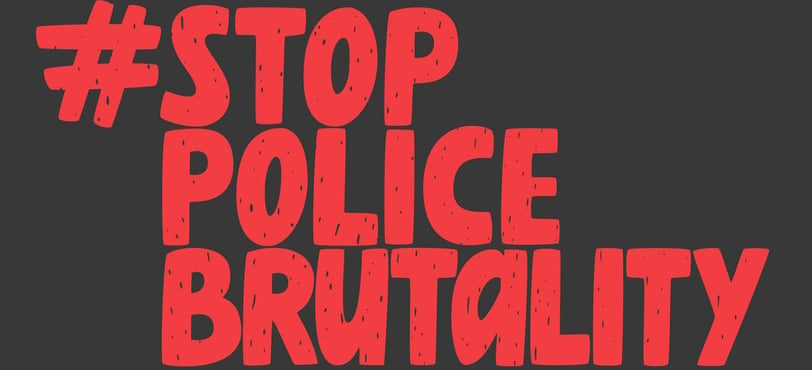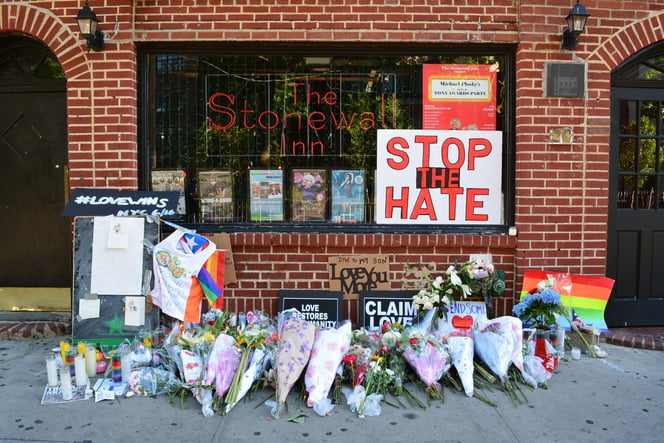The Persistent Presence of Police Brutality
Unfortunately, marginalized communities have a lot in common – discrimination, violence, microaggressions, abuse, damaging legislation, unemployment, and more. It reminded me of something I learned about people a long time ago.
LGBTQ+
Kenadie Cobbin-Richardson
10/19/20243 min read


After two interviews with amazing leaders from the LGBTQ+ community during Pride Month, I realized just how connected I was to their journey, but only because it mirrored my own. Unfortunately, marginalized communities have a lot in common – discrimination, violence, microaggressions, abuse, damaging legislation, unemployment, and more. It reminded me of something I learned about people a long time ago.
When I was a young, single woman, I spent a lot of time in places talking about relationships. One night, in church, I was listening to Dave Ramsey, the financial guru. He talked passionately about money and marriage. He said something very profound that I’ve never forgotten. He said, “Opposites may attract but similarities stay together.” He added a new layer to the phrase – equally yoked. From that moment on, I was intentional about seeking opportunities to meet people with whom I had much in common. Even in sales when you are trying to build rapport with your customer, the easiest way to do that is when you discover that you have joint interests. It doesn’t even matter if that thing you have in common is good or bad.
In the case of my interviews with Sy and AJ, our commonalities registered as bad, very bad. AJ Huth and I discussed “Rainbow Capitalism.” This is when you proclaim to stand in solidarity with the LGBTQ+ community and wave the rainbow flag, yet exploit them in order to make money, but have no interest in fighting for LGBTQ+ rights and/or freedoms.
Pride began as a response to rainbow capitalism and police brutality. The Mafia owned the Stonewall Inn – a bar for the LGBTQ+ community. The mafia took advantage of them because they needed a welcoming place to go for nightlife. Drink prices were increased dramatically and even though they paid the police under the table to stay away, police still showed up and harassed and brutalized the bar’s patrons. Sound familiar?
Here is where the commonalities took me to the sunken place. I am saddened by the persistent presence of police brutality in America. How powerless Stonewall patrons must have felt every time the police showed up with the intent to abuse their power?
Even though this reality hurt, it confirmed my topic for next month which is National Minority Mental Health Month. I plan to discuss “Police Brutality + Mental Health.” It turns out that there is a significant correlation between police brutality and its effect on mental health.
According to Harvard professor, David R. Williams, who looked at every police shooting in America over a three-year period (between 2013‒2015) and then linked that, in a quasi-experimental design, with data from the CDC (Centers for Disease Control and Prevention) on the mental health of the population in every state. It revealed that every police shooting of an unarmed Black person was linked to worse mental health for the entire Black population in the state where that shooting had occurred for the next three months.
He added, “There’s a body of evidence emerging that suggests these incidents are having a negative impact not just on victims’ family members, but there’s a broader community grieving; there’s a broader “threat” to the community; there’s a broader increase in personal vulnerability that’s having mental health consequences.”
I absolutely know this to be true. Just from news coverage and overhearing a few conversations, my two young daughters became terrified at the sight of police in uniform. It broke my heart to know that an entity with the motto "to protect and serve" actually makes the rest of us feel vulnerable to lethal predators who have the freedom to abuse their power at will - without consequence.
Join me at noon on Wednesday, July 6th and 20th for Kengen’s DEI Spotlight to explore mental health for marginalized communities as well as some solutions for reversing and preventing poor mental health conditions. This is especially important for the workplace. When there's been a particularly brutal news story that involves the police and murder, do not assume that your employees are ok. What can you do to support your employees during difficult times? I hope to see you there!
To access Kengen’s DEI dictionary so that you don’t say the wrong thing, click here.
To help you use gender-inclusive pronouns more effectively, click here.





